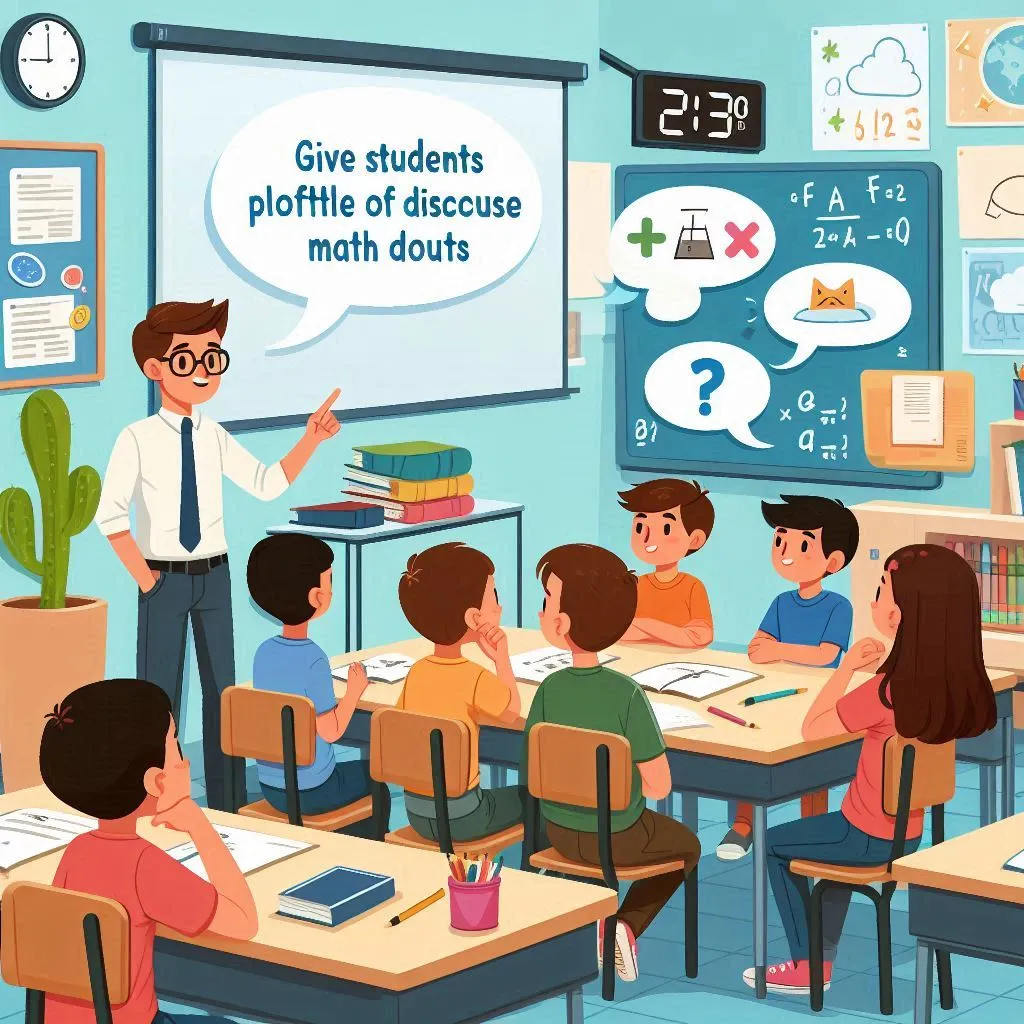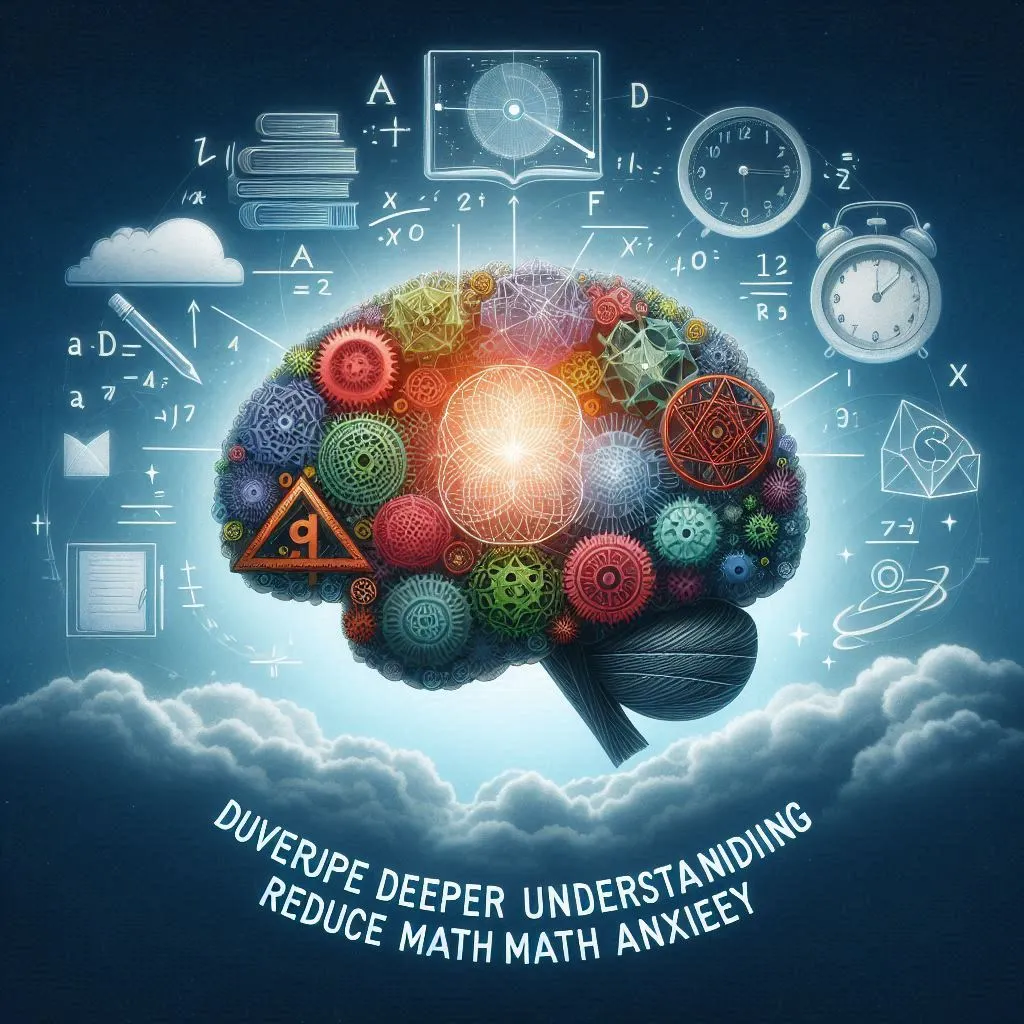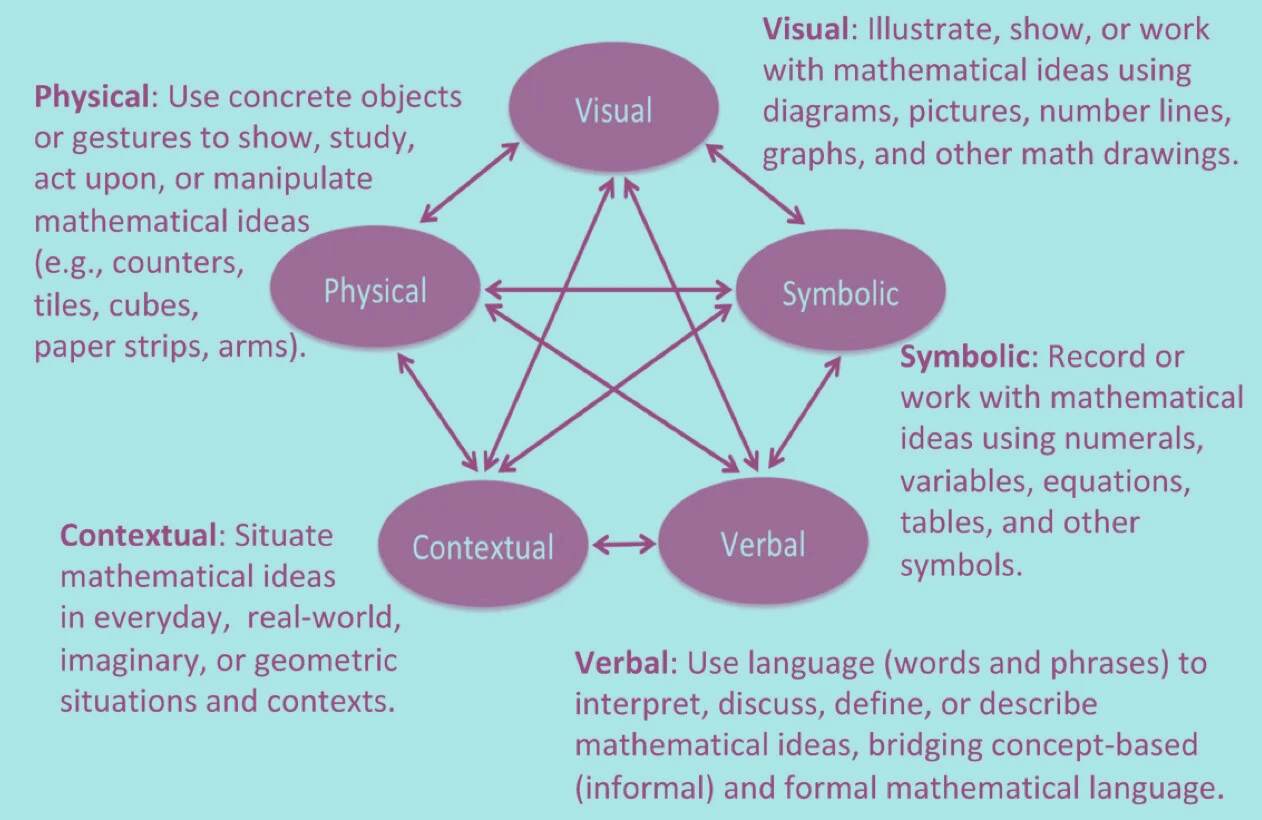Update: This article was last updated on 9th January 2026 to reflect the accuracy and up-to-date information on the page.
"Many who have had an opportunity of knowing any more about mathematics confuse it with arithmetic and consider it an arid science. In reality, however, it is a science that requires a great amount of imagination."
- Sofya Kovalevskaya

A mathematical concept is a fundamental idea in mathematics. Basic math concepts include addition, multiplication, counting, and equality.
Understanding mathematics is a fundamental skill that begins developing in early childhood and continues to evolve throughout one’s educational journey and beyond. It requires individuals to make connections and truly comprehend how math functions in various contexts.
The debate between procedural fluency and conceptual understanding in math education has long shaped educational discourse. Traditional methods stress mastery of algorithms, while newer approaches prioritize understanding mathematical concepts. Yet, both fluency in procedures and conceptual knowledge are essential for effective math learning, as highlighted by research.
In this context, we can explore the key aspects highlighting the importance of cultivating a profound understanding of mathematical concepts during childhood.
1. Use Memorization as a deeper understanding of math concepts

Neuroscientists studied kids for a year using brain scans to see how different ways of solving math problems affect their brains. They found that as kids went from counting on their fingers to remembering math facts, their brains changed.
The part of the brain for memory called the hippocampus started taking over from the part for thinking and planning, called the prefrontal-parietal cortex. This shows that as kids memorize basic math, their brains get ready for harder math (Qin et al., 2014).
2. Understanding the fundamentals of math concepts

Conceptual knowledge in math enables flexible application and better retention of learning. In a study with grade 4 and 5 students, researchers compared lessons focusing on conceptual understanding versus procedural knowledge of equivalence. Assessments included standard and transfer problems, showing varied problem features.
The researchers found that teaching children conceptual understanding resulted in better grasp and application of procedures across different tasks. Procedural instruction improved understanding and execution but showed limited transfer to new tasks according to (Rittle-Johnson and Alibali, 1999).
3. Motivate students to identify, define, and follow patterns and relationships.

Encourage students to identify, define, and create patterns and relationships. Currently, students’ pattern awareness often lacks sustained and explicit focus across math concepts and grade levels, leaving its development to chance. Research shows that children notice patterns early, from daily routines to rhythmic patterns in songs and language. The structure of math revolves around patterns, with major algebra and geometry concepts being generalizations of these patterns, which are core to any math course. Dr. Bethany Rittle-Johnson’s study found that young children’s ability to spot patterns predicted later math achievement better than counting and other skills (Rittle-Johnson et al., 2016). Using problem sequences, highlighting patterns in instruction, and encouraging pattern recognition helps students build conceptual understanding, fostering confidence and proficiency in math, both in and out of the classroom
Recommended Reading: Why Should Your Kid Study Robotics Today?
4. Give students plenty of opportunities to discuss math doubts in the Classroom.

Many students don’t get the chance to talk about math in the classroom, which can make them doubt their skills. Provide ample opportunities for students to discuss math. Often, teachers lecture or demonstrate procedures while students quietly work on practice problems. However, research highlights the importance of math talk, or “facilitating meaningful mathematical discourse,” as identified by NCTM (2014). Math talk supports student learning by improving memory, understanding, language, social skills, confidence, and interest in math. Engaging in challenging math tasks, discussing strategy choices, and reasoning about solutions help students clarify their understanding, see different perspectives, and refine their thinking. Strategies to promote math talk include asking questions, encouraging pair or group discussions, and debriefing lessons.
Recommended reading: What are Mathematical Skills, and Why Does Your Child
5. Introduce high-quality math curriculum

Implementing a high-quality math curriculum is crucial for promoting coherence across topics and grade levels. Current practices often prioritize procedural fluency, leading to fragmented and shallow exploration of math concepts. Research by NCTM (2007) shows that standards-based curricula enhance conceptual understanding and problem-solving skills without sacrificing performance on standardized tests. NCTM (2000) identifies three key features of effective math curricula: linking concepts systematically, applying math to real-life scenarios, and preparing students for advanced study. Early exposure to such a curriculum fosters a robust understanding of math concepts, paving the way for deeper engagement and progression in mathematics throughout students’ educational journeys.
Recommended reading: Essential Math Vocabulary for Kids
6. Develop a deeper understanding of Math concepts to reduce math anxiety.

In 2017, researchers investigated the impact of conceptual versus procedural instruction on math anxiety among remedial math students at an urban community college. Two sections focused on concepts, while the other two emphasized procedures. Participants completed the Mathematics Anxiety Rating Scale at the beginning and end of the courses. Results showed that students in the concept-based courses demonstrated stronger conceptual understanding, performed better on procedural quizzes, and experienced significantly reduced math anxiety compared to those in procedure-based courses (Khoule, Bonsu, and El Houari 2017).
Recommended reading: Advanced Math Program for Grades 2-8 Technologists

This graph data has been taken for use and connection to mathematical representations.
Conclusion
In conclusion, the journey to developing a deep understanding of mathematics is a continuous process that begins in early childhood, spans through various educational stages, and extends into adulthood. The commitment to providing high-quality, equitable education, fostering positive attitudes towards math, and employing effective teaching practices is essential for ensuring that every student achieves a genuine and lasting understanding of mathematics.
Want to excite your child about math and sharpen their math skills? Moonpreneur’s online math classes for kids are unique as it helps children understand math skills through hands-on lessons, assist them in building real-life applications, and excite them to learn math.
You can opt for our Advanced Math or Vedic Math+Mental Math courses. Our Math Quiz for grades 3rd, 4th, 5th, and 6th helps in further exciting and engaging in mathematics with hands-on lessons.
Recommended reading
➜Is Advanced Calculus The Hardest Math Class In High School? A Student’s Perspective
➜Surviving the Hardest Math Class in High School: Tips and Tricks
➜5 Creative Ways to Make Math Fun for Kids
➜Useful Applications of Math in Daily Life
➜What’s the Ideal Math Proficiency Level for Game Developers?


























How do i make learning math easy and fun for my kids
Make learning math fun for kids with interactive games, hands-on activities, relatable real-world examples, engaging apps, and encouraging a positive, supportive learning environment.